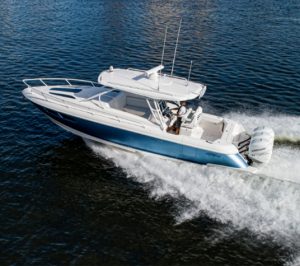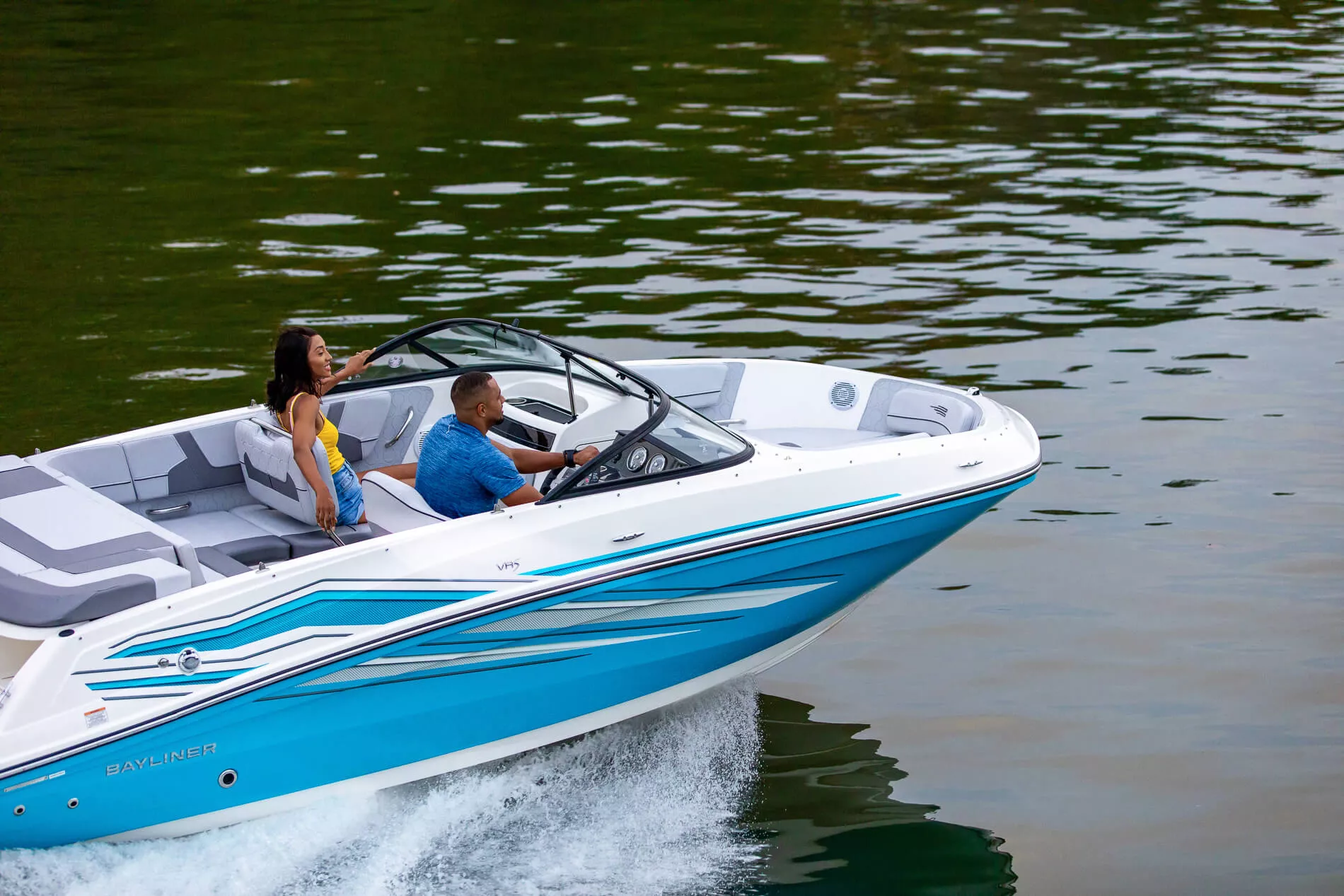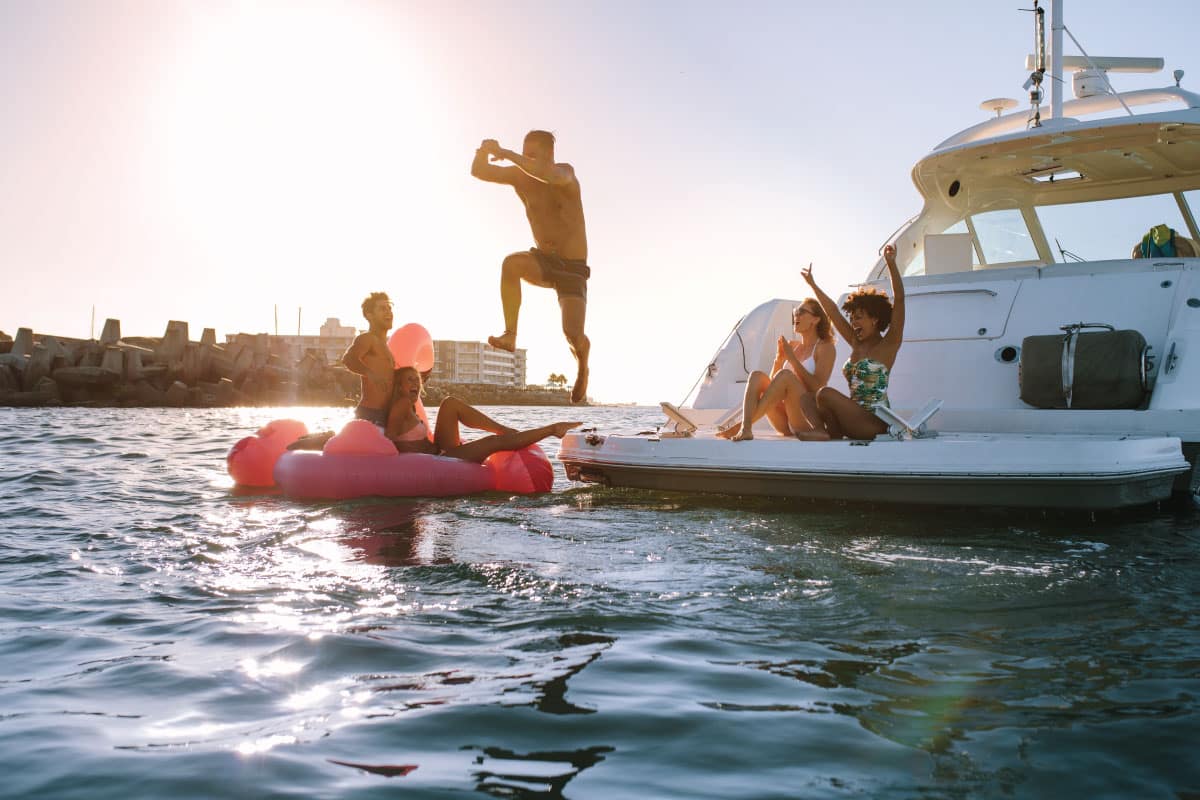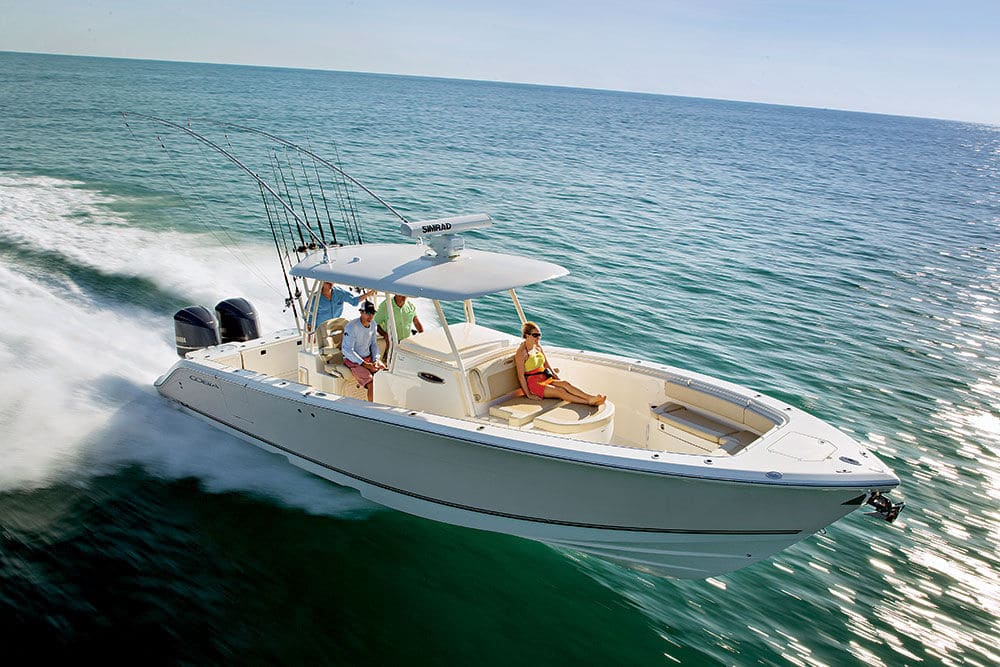Commercial Boats
Commercial Boats: A Guide to Choosing the Right Vessel for Your Business Needs
Commercial boats are vessels that are used for business purposes, such as transportation, fishing, cargo shipping, and more. These boats are designed to handle the rigors of everyday use and are built to last. They come in a variety of sizes and types, each with its own set of features and capabilities, making them suitable for a wide range of applications.
One of the most common types of commercial boats is commercial fishing boats, which are used by fishermen to catch fish and other marine life. These boats are equipped with special equipment, such as nets, traps, and lines, to help fishermen catch their prey. They are also designed to handle the harsh conditions of the open sea, making them reliable and dependable.
Another important aspect of commercial boats is their equipment. Commercial boats are typically equipped with a variety of tools and accessories, such as navigation systems, communication systems, and safety equipment, to ensure the safety of the crew and passengers. Additionally, commercial boats are often equipped with specialized equipment, such as refrigeration units, to help transport perishable goods.
Key Takeaways
- Commercial boats are used for business purposes, such as fishing, transportation, and cargo shipping.
- Commercial fishing boats are designed to handle the rigors of the open sea and are equipped with special equipment to help fishermen catch their prey.
- Commercial boats are often equipped with specialized equipment, such as refrigeration units, to help transport perishable goods.
Types of Commercial Boats
Commercial boats are designed and built for a variety of purposes, ranging from transporting passengers and cargo to fishing and recreation. The following are some of the most common types of commercial boats:
-
Cargo Boats: These boats are designed to transport goods and materials from one location to another. They come in different sizes and shapes, and can be powered by diesel engines, steam engines, or even sails.
-
Passenger Boats: These boats are used to transport people from one place to another. They can be used for public transportation, tourism, or even luxury cruises. Passenger boats can be further classified into different types such as ferries, water taxis, and cruise ships.
-
Fishing Boats: These boats are designed for commercial fishing activities such as catching fish, crabs, and lobsters. They come in different sizes and shapes, and can be powered by diesel engines or even sails.
-
Tugboats: These boats are used to tow other boats or barges. They are designed to be powerful and maneuverable, and can be used in a variety of settings such as ports, harbors, and canals.
-
Barges: These boats are designed to carry cargo such as coal, grain, and oil. They are usually towed by tugboats and can be used for transportation or storage purposes.
-
Dive Boats: These boats are used for recreational or commercial scuba diving. They are designed to be stable and spacious, and can accommodate a large number of divers and their equipment.
-
Houseboats: These boats are designed for living on the water. They can be used as permanent residences or as vacation homes, and are equipped with all the necessary amenities such as kitchens, bathrooms, and bedrooms.
-
Yachts: These boats are designed for luxury and leisure activities such as cruising, fishing, and water sports. They come in different sizes and shapes, and can be powered by diesel engines or even sails.
In conclusion, commercial boats come in a variety of types and sizes, each designed for a specific purpose. Whether it's transporting cargo, passengers, or fish, or for recreational or luxury activities, there is a commercial boat for every need.
Commercial Fishing Boats
Commercial fishing boats are specifically designed to catch fish or other aquatic animals for commercial purposes. These boats come in various sizes and shapes and are equipped with different types of fishing gear depending on the targeted species and fishing method. Some common types of commercial fishing boats include trollers, seiners, longliners, and lobster boats.
Trollers are used to catch fish such as salmon, tuna, and mackerel. These boats tow lines with baited hooks behind them, and the fish are caught when they bite the hook. Seiners, on the other hand, are used to catch fish in large schools. These boats use a large net to encircle the fish and then pull the net to catch them.
Longliners are used to catch fish such as halibut, swordfish, and tuna. These boats deploy a long line with baited hooks attached to it. The line can be several miles long and can have thousands of hooks. When a fish bites the hook, it is reeled in and the process repeats.
Lobster boats are used to catch lobsters using traps. These boats drop traps into the water and then come back to collect them after a certain period of time. The traps are baited with fish heads or other types of bait to attract the lobsters.
Commercial fishing boats are essential for the fishing industry, and they play a critical role in providing seafood to consumers worldwide. However, overfishing and other unsustainable fishing practices have led to a decline in fish populations in many areas. It is important to manage fisheries properly to ensure that they are sustainable and can continue to provide seafood for generations to come.
Boat Equipment
Commercial boats require a variety of equipment to ensure they are safe and functional. Here are some essential pieces of equipment that every commercial boat should have:
Prop
The prop, short for propeller, is a crucial component of any commercial boat. It is responsible for propelling the boat forward and steering it. The prop is typically made of stainless steel and comes in a variety of sizes and shapes to suit different boats and applications. It is essential to choose the right prop for your boat to ensure optimal performance and fuel efficiency.
Fenders
Fenders are used to protect the boat from damage when it is docked or moored. They are typically made of rubber or foam and come in a variety of sizes and shapes to suit different boats. Fenders can be attached to the boat's hull or deck using ropes or straps. It is essential to have the right size and number of fenders to protect the boat from damage.
Anchor
An anchor is used to keep the boat in place when it is not in motion. It is typically made of stainless steel and comes in a variety of sizes and shapes to suit different boats and anchoring conditions. It is essential to choose the right anchor for your boat to ensure it can hold the boat in place even in adverse weather conditions.
Stainless Steel
Stainless steel is a popular material used in many components of commercial boats. It is known for its strength, durability, and resistance to corrosion. Stainless steel is used in propellers, anchors, cleats, and other components of the boat. It is essential to choose high-quality stainless steel to ensure the boat's components can withstand the harsh marine environment.
In conclusion, having the right equipment is crucial for the safety and functionality of commercial boats. The prop, fenders, anchor, and stainless steel components are just a few of the essential pieces of equipment that every commercial boat should have. It is essential to choose high-quality equipment that is suitable for your boat and its intended use.
Boat Manufacturers
When it comes to commercial boats, there are several reputable manufacturers that produce high-quality vessels for various applications. These manufacturers have a wealth of experience and expertise in building boats that are not only functional but also reliable and durable.
One such manufacturer is Hanko Boats. With over 35 years of experience in boat building, Hanko Boats has become a trusted name in the industry. Their boats are built with pride for commercial and governmental customers, and they offer proven designs and functional floor plans that meet the unique needs of their clients.
Lee Shore Boats is another manufacturer that specializes in custom aluminum boats for commercial and recreational applications. Their boats are designed for fishing, rescue, patrol, and more. They use high-quality materials and advanced construction techniques to ensure their boats are strong and durable.
BRIX Marine is known for crafting some of the world's most rugged aluminum catamarans and workboats since 1991. Their boats are custom-built and engineered to withstand harsh operating conditions. They offer a range of catamarans that are perfect for commercial applications, including ferry services, dive boats, and research vessels.
Workskiff is a manufacturer of commercial aluminum workboats that are engineered for work on the water. They offer a range of boats that are designed for various applications, including military and law enforcement. Their boats are built to withstand harsh and aggressive operating conditions, making them ideal for demanding commercial applications.
Elastec is a manufacturer of aluminum landing craft and workboats that are designed for a variety of applications. Their Inlander workboat, for example, is a hybrid of hull styles that gives it unique capabilities. The modified V hull with a blunt bow, high sides, and a wide stance increase the payload to double that of similar boats, an impressive 4,000 lbs./1,800 kg. They can be lashed together to form a barge, or used individually for a range of commercial applications.
Many boat manufacturers use engines from Cummins, Caterpillar, and Volvo. These companies are known for producing high-quality engines that are reliable and efficient. Cummins offers a range of marine engines that are designed for commercial applications, including propulsion and auxiliary power. Caterpillar also offers a range of marine engines that are designed for various applications, including fishing, offshore, and tug and salvage. Volvo Penta is another manufacturer of marine engines that offers a range of solutions for commercial applications, including propulsion and auxiliary power.
Overall, there are many boat manufacturers that produce high-quality vessels for commercial applications. These manufacturers have a wealth of experience and expertise in building boats that are functional, reliable, and durable.
Boat Licensing and Permits
Operating a commercial boat requires proper licensing and permits to ensure safety and compliance with regulations. The United States Coast Guard (USCG) is responsible for issuing licenses to commercial boat operators.
To obtain a USCG license, applicants must meet certain requirements, including completing a boater safety education course, passing a physical examination, and demonstrating proficiency in operating a boat. The specific requirements vary depending on the type of license being sought.
In addition to licensing, commercial boat operators may also need to obtain permits for certain activities. Permits may be required for fishing, transporting passengers or cargo, or operating in protected areas. The requirements for obtaining permits can vary depending on the location and type of activity.
It is important for commercial boat operators to stay up-to-date with licensing and permit requirements. Failure to comply with regulations can result in fines and legal consequences. Additionally, proper licensing and permits can help ensure the safety of passengers and crew, as well as protect the environment.
Overall, obtaining the necessary licensing and permits is an essential part of operating a commercial boat. By following regulations and staying informed, boat operators can ensure the safety of their passengers and crew while also complying with legal requirements.
Reliability and Dependability of Commercial Boats
Commercial boats are designed and built with a focus on reliability and dependability. These boats are used for a variety of purposes, including transportation of passengers and cargo, fishing, and offshore operations. As such, they need to be able to withstand harsh weather conditions, rough seas, and heavy usage.
One of the primary factors that affect the reliability of commercial boats is the quality of their construction. Commercial boats are typically built using high-quality materials and are designed to be sturdy and durable. They are also subject to rigorous testing and inspections to ensure that they meet the safety and performance standards set by regulatory agencies.
Another important factor that affects the reliability of commercial boats is the quality of their maintenance. Regular maintenance is essential to keep commercial boats in good working condition and to prevent breakdowns and other issues. Maintenance tasks may include engine checks, hull inspections, and electrical system testing, among others.
Dependability is another key factor that is important for commercial boats. These boats are often used for critical operations, such as transporting passengers or carrying out offshore operations. As such, they need to be dependable and able to perform their intended functions reliably and consistently.
To ensure dependability, commercial boats are often equipped with redundant systems and backup equipment. For example, they may have multiple engines, generators, and navigation systems to ensure that they can continue to operate even if one system fails. They may also be equipped with safety equipment, such as life rafts and emergency beacons, to ensure that passengers and crew can be rescued in the event of an emergency.
Overall, the reliability and dependability of commercial boats are critical factors that affect their safety and performance. By focusing on quality construction, rigorous testing, regular maintenance, and the use of redundant systems and backup equipment, commercial boat operators can ensure that their boats are able to perform their intended functions safely and reliably.
Commercial Boating in Florida
Florida is a prime location for commercial boating due to its extensive coastline and numerous waterways. The state's thriving boating industry is a significant contributor to the economy, generating billions of dollars in revenue annually. Commercial boats in Florida are used for a variety of purposes, including fishing, transportation, and tourism.
Fishing is one of the most prominent commercial boating activities in Florida. The state has a vast array of fish species, making it an ideal location for commercial fishing. Commercial fishing boats in Florida are equipped with specialized gear and equipment to catch fish in large quantities. Some of the most commonly caught fish in Florida include grouper, snapper, and shrimp.
In addition to fishing, commercial boats in Florida are also used for transportation. Many businesses rely on commercial boats to transport goods and materials to and from various locations. The state's extensive waterways provide an efficient and cost-effective way to transport goods, especially for businesses located near the coast.
Tourism is another significant industry that relies on commercial boats in Florida. Boat tours, charters, and cruises are popular tourist activities in the state. Commercial boats used for tourism are often large vessels that can accommodate large groups of people. These boats are equipped with amenities such as restrooms, dining areas, and entertainment systems to provide a comfortable and enjoyable experience for tourists.
Overall, commercial boating is an essential industry in Florida, providing numerous economic benefits. The state's extensive coastline and waterways make it an ideal location for commercial boating activities such as fishing, transportation, and tourism.
Inflatable Commercial Boats
Inflatable boats are a popular choice for commercial use due to their versatility, durability, and ease of transport. These boats are made of lightweight materials and can be easily inflated and deflated, making them easy to store and transport. They are also highly customizable, allowing businesses to choose the size, shape, and features that best suit their needs.
When it comes to commercial use, inflatable boats are often used for a variety of purposes, including rescue missions, patrol operations, and transportation. They are also popular for recreational activities such as fishing, kayaking, and rafting.
One of the key advantages of inflatable commercial boats is their stability. These boats are designed with a deep-V hull that provides excellent stability and maneuverability, even in rough waters. They are also highly resistant to punctures and abrasions, making them ideal for use in harsh environments.
Inflatable commercial boats come in a variety of sizes and styles, from small dinghies to large RIBs (rigid inflatable boats). They can be powered by outboard motors, inboard engines, or even paddles, depending on the intended use. Some models also come with additional features such as built-in seats, storage compartments, and navigation systems.
Overall, inflatable commercial boats are a reliable and cost-effective option for businesses looking for a versatile and durable watercraft. With their lightweight design, ease of transport, and customizable features, they are a popular choice for a wide range of commercial applications.
Conclusion
Commercial boats are an essential part of various industries, including fishing, tourism, and transportation. They offer a cost-effective and efficient way to transport goods and passengers across waterways. As technology advances, the design and functionality of commercial boats continue to improve, making them safer, faster, and more reliable.
One of the advantages of owning a commercial boat is its versatility. Depending on the type of boat, it can be used for different purposes, such as passenger transportation, freight transportation, fishing, tourism, and search and rescue operations. Commercial boats are also designed to withstand harsh weather conditions, making them ideal for use in different environments.
Another advantage of commercial boats is their cost-effectiveness. Compared to other modes of transportation, such as trucks or planes, boats offer a more affordable option for transporting goods and passengers. This is especially true for long-distance transportation, where boats can cover large distances at a lower cost.
However, owning a commercial boat also comes with its own set of challenges. For instance, boat owners need to ensure that their boats comply with safety regulations and are adequately insured. They also need to maintain their boats regularly to ensure they are in good working condition.
Overall, commercial boats are an essential part of various industries and offer a cost-effective and efficient way to transport goods and passengers across waterways. As technology continues to advance, the design and functionality of commercial boats will continue to improve, making them safer, faster, and more reliable.
Frequently Asked Questions
What is a commercial fishing boat?
A commercial fishing boat is a vessel that is used for catching fish or other seafood for commercial purposes. These boats are typically larger and more specialized than recreational fishing boats, and are designed to withstand the rigors of commercial fishing operations.
How big are commercial fishing boats?
The size of a commercial fishing boat can vary widely depending on the type of fishing it is used for. Some commercial fishing boats are relatively small, while others can be quite large. For example, trawlers used for deep-sea fishing can be over 100 feet long.
What is the difference between a commercial fishing boat and a charter boat?
A commercial fishing boat is used for catching fish or other seafood for sale, while a charter boat is used for recreational fishing trips. Charter boats are typically smaller and less specialized than commercial fishing boats, and are designed for short-term trips with paying customers.
Where can I find commercial fishing boats for sale?
Commercial fishing boats can be found for sale through a variety of channels, including online marketplaces, boat dealerships, and auctions. It is important to carefully research any boat you are considering purchasing to ensure that it is in good condition and meets all relevant regulations.
What are some common types of commercial fishing boats?
There are many different types of commercial fishing boats, each designed for a specific type of fishing. Some common types of commercial fishing boats include trawlers, longliners, gillnetters, and purse seiners.
What are the regulations for operating a commercial boat?
Operating a commercial fishing boat is subject to a wide range of regulations at both the federal and state level. These regulations cover everything from safety equipment and crew training to fishing quotas and environmental protection. It is important for anyone operating a commercial fishing boat to be familiar with all relevant regulations and to ensure that their boat is in compliance.
















